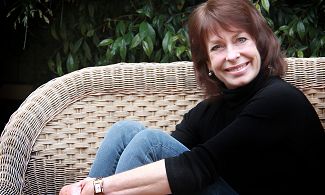You are here
A light sleeper ...
Consultations in a time of Covid-19
In response to the challenge of no longer being able to see clients in my rooms, I am available for phone, Zoom and email consultations. Please feel free to contact me to discuss how this might work for you. We’re all in this together!
Everywhere I look lately, the world seems to be crying out about the issue of sleep. It started a few weeks ago when someone sent me an academic article that examined the relationship between suicidal ideation and sleep deprivation––it concluded that insomnia increased suicide risk because it induced symptoms of depression, as well as being responsible for a heightened sense of “burdensomeness”.
Then just the other day, I read that the 2017 Nobel Prize for medicine was awarded to a research team for the discovery of how our circadian rhythms (the 24-hour body clock) are controlled. The genetics behind circadian rhythms and sleep are more complex than initially thought, and are encoded in many body cells. Because a major part of the mechanism of sleepiness is response to light, we have really messed things up with artificial light––and we continue to make things worse with screen time and hours spent in subdued indoor lighting. As the lead researcher on this project said, “It’s been overlooked for a long time as a real public health problem. All of western society is a little bit sleep deprived, and when I say a little bit, I mean chronically.”
What should turn up in my In box shortly after this, but a wonderful essay, The End of Night, by an American science writer. She explores the effects of the “eternal electric day” which is creeping across the globe. It is possible that our bodies and brains can’t cope with a world without darkness. Artificial light is not only disturbing the behaviours of many species of animals––it is probably also deeply disturbing the human animal. As one of the scientists she quotes observes, light may prove to be a major factor in depression, obesity and cancer.
We aren’t going to turn out the lights at night––as romantic as the idea of reverting to firelight and candlelight might be, it isn’t going to happen. But there are things we now know about maximising healthy sleep, including things we can do about light, and it seems increasingly important that we pay attention to this. I, for one, am trying to eliminate screen time in the evening. And I am making a point of talking with my clients––particularly those who are experiencing anxiety and depression––about their sleep habits and experiences.
- Log in to post comments

Blogs by month
- April 2020 (1)
- November 2017 (1)
- October 2017 (1)
- September 2017 (1)
- July 2017 (1)
- August 2016 (1)
- February 2016 (1)
- August 2015 (1)
- June 2015 (1)
- September 2013 (1)
- August 2013 (1)
- June 2013 (1)
Blogs by category
-
(3)
-
(1)
-
(3)
-
(6)
-
(3)
-
(1)
-
(1)
-
(3)
-
(3)
-
(2)
-
(4)
-
(5)
-
(2)
